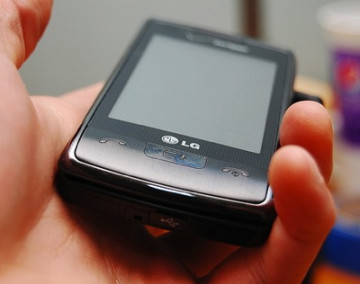RI, MA Privacy Experts Applaud Supreme Court Cell Phone Ruling
Wednesday, June 25, 2014
A new, unanimous U.S. Supreme Court ruling that makes it harder for police to search cell phones is being applauded by privacy experts in Rhode Island and Massachusetts.
“Today’s court ruling confirms the critical privacy interests we all have in the contents of our cell phones. By requiring police to obtain a warrant in order to conduct such an intrusive search, the court has recognized that the Fourth Amendment must keep pace with technological advances in order to preserve our privacy,” said Steven Brown, executive director of the ACLU of Rhode Island.
Court Ruling
GET THE LATEST BREAKING NEWS HERE -- SIGN UP FOR GOLOCAL FREE DAILY EBLASTThe Court ruled that when arresting a suspect, police can search the physical makeup of a cellphone to make sure it cannot be used as a weapon, but the data on the phone cannot be searched without a warrant.
"We cannot deny that our decision today will have an impact on the ability of law enforcement to combat crime. Privacy comes at a cost," Chief Justice John Roberts is quoted on writing in the ruling.
ACLU Thrilled With Decision
Brown said that Rhode Island attempted to pass legislation to protect cell phone privacy in 2012.
“It is worth noting that in 2012, the General Assembly was ahead of the curve on this issue. That year, legislators overwhelmingly passed a bill introduced by Rep. Edith Ajello that codified the court decision’s principles into law. Although the bill was supported by a broad range of organizations – including the ACLU, the RI Press Association, the Public Defender and the RI Tea Party – Governor Chafee unceremoniously vetoed the bill, essentially leaving it up to the courts to protect Rhode Islanders’ electronic privacy rights only to the extent required by the Constitution,” Brown said.
Worcester Criminal Justice Expert Weighs In
“I think what the court is saying is that there’s a reasonable expectation of privacy with the stuff we put in our phone,” said Dr. Steve Morreale, Chairman of the Department of Criminal Justice at Worcester State University.
As a former law enforcement agent with the Drug Enforcement Agency of New England, Morreale knows cell phone data can be useful to authorities, but he also knows there is critical information on many cell phones that needs to be protected.
“Our phones have become so sophisticated, with so much information put onto them- bank accounts, friends- there’s so much info on these things that it’s like a wallet,” Morreale said. “Those phones in the wrong hands can really cause a lot of havoc.”
Morreale said that in today’s technology-centric society, protecting cell phones was next in the progression of privacy rights.
“It’s just like getting into a house, you need a warrant,” Morreale said. “We can’t tap phones without a warrant. You can’t get into my computer without a warrant.”
Related Articles
- Facebook Announces Changes to Privacy Controls
- How to Protect Your Privacy on Facebook
- Terrorists Win When Our Privacy Is Invaded
- Leonardo Angiulo: How Much Privacy Did You Lose Last Week? A Lot.
- State Report: Social Media Privacy, Taxi Cab Tax + Jobs for Vets
- LEGAL MATTERS: You Give Up All Privacy When You Cross The Border



